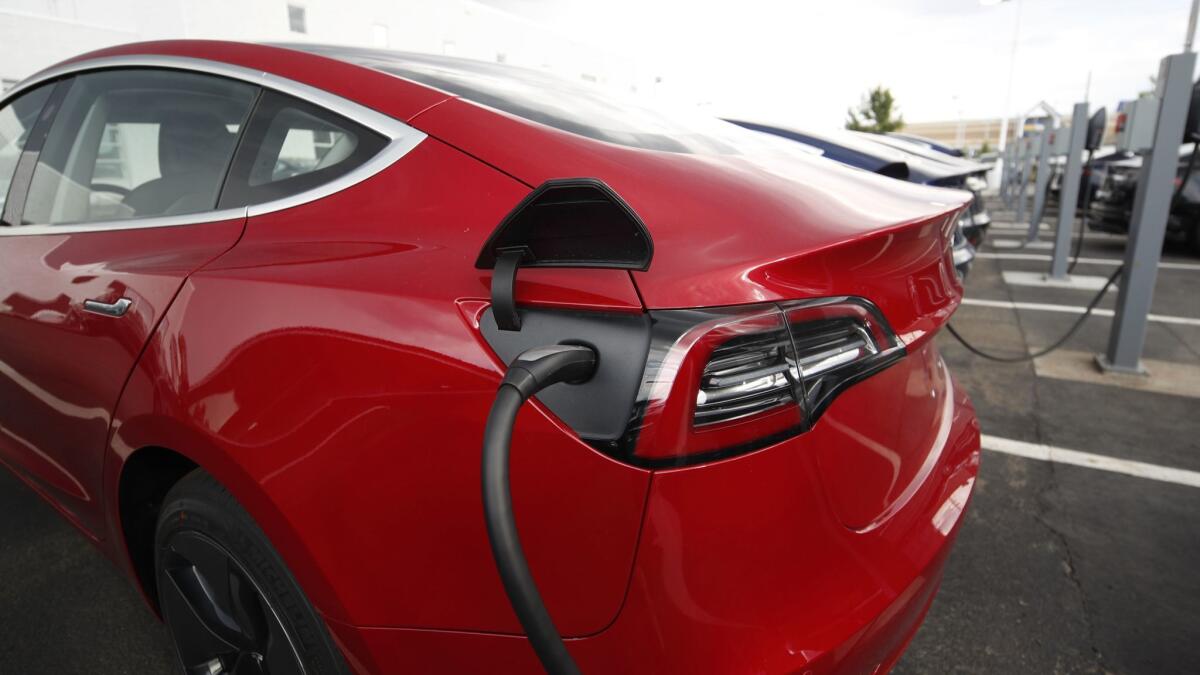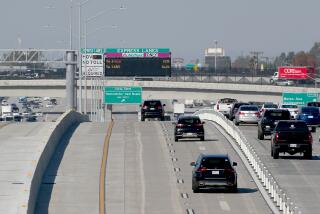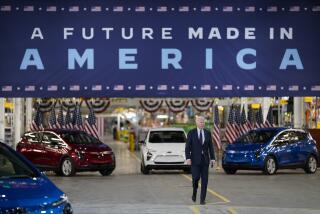Readers React: Why 2035 is too soon for everyone to be driving electric cars

To the editor: I drive an all-electric Chevrolet Bolt. For a commuter car, there is no equal; it gets 240 miles per charge, more in heavy traffic and considerably less on the open road. The price of an electric car is considerably more than what you pay for a gas-powered vehicle, especially when you figure in the cost of the home-charging system. Government rebates helped with my purchase.
Climate change activists want the production of gas-powered cars to end by 2035. But they don’t seem to be asking: Can we really do this? Can we, say, build an electric car with solar panels? What will we do with the millions of regular cars that are built in the next 17 years? Just how much power can we obtain through wind and solar? Hydroelectric power is clean, but no one wants to build more dams. Also, nuclear power seems to be off the table. How much does natural gas pollute?
We cannot just dismiss these concerns and make a blanket statement that something is doable by a certain date, but make the date so far away that no one will remember what was said anyway — or in my case, long passed away and unable to write a letter to the editor asking, “What happened?”
Robert G. Rose, Brentwood
..
To the editor: Killing off production of gas-powered vehicles by 2035 and replacing them with millions of electric vehicles would result in a huge increase in electricity demand to charge all those cars.
With California’s new law requiring all electricity in the state to be provided by renewable sources by 2045, and considering that most of the electric cars would be recharged at night, solar-generated power would not be available unless a massive amount of expensive energy storage comes online.
Stephen Hulsey, Los Angeles
Follow the Opinion section on Twitter @latimesopinion and Facebook.
More to Read
A cure for the common opinion
Get thought-provoking perspectives with our weekly newsletter.
You may occasionally receive promotional content from the Los Angeles Times.






